Liquid filters are porous mechanisms that enable filtration systems to remove solid particles from a fluid stream. Industrial processes rely on various fluids which can easily get contaminated by unwanted solids during various stages (e.g. during initial mixing or after certain chemical reactions). Liquid filtration is a common method for clearing critical liquids of such unwanted material. Read More…
Liquid filters are just a part of our complete line of filters and cartridges. Shelco is dedicated to providing our customers with excellent quality customer service and high quality products. This is shown through our state-of-the-art research and development team working to increase performance while reducing costs. We take pride in the fact that Shelco filters are distributed and used all over ...

Clean Liquid Systems is a leading manufacturer of air and liquid filters. Our number one priority is to create the best filters that match the needs of our customers. We strive to have a fast turnaround while not reducing the quality of our products. Filtration is the only thing we do and ensure that we make our products right. We provide our customers with hundreds of years of experience and...
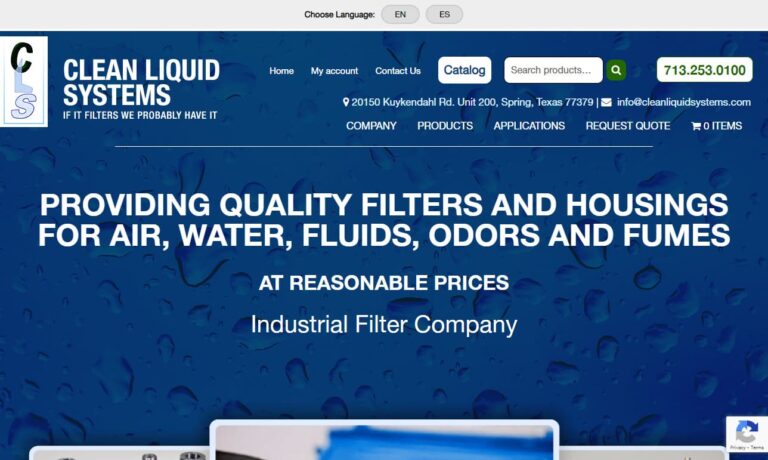
At Great Lakes Filters, we specialize in providing advanced liquid filtration solutions that keep industrial systems running clean, efficient, and reliable. With decades of experience in the filtration industry, we have developed a deep understanding of how to meet the demanding requirements of diverse applications—from metalworking fluids and coolants to chemical processing, water treatment,...
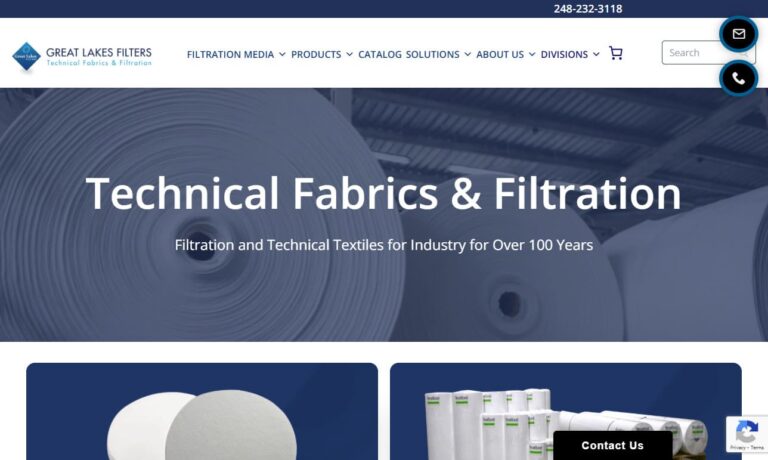
At Ryan Herco Flow Solutions, we are dedicated to providing high-quality liquid filtration products that keep critical processes running smoothly. Our expertise lies in helping customers solve complex fluid management challenges, and our liquid filters are at the heart of those solutions.
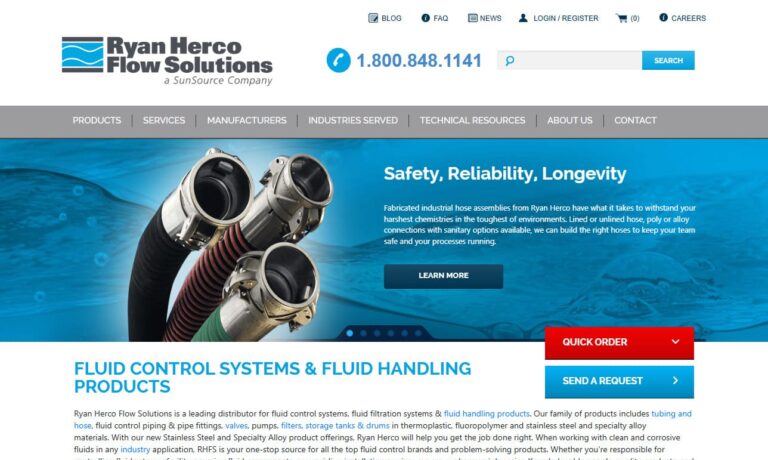
More Liquid Filter Manufacturers
Sometimes, liquid filtration is used to collect the filtered materials. However, in many industrial and commercial applications, the primary goal is to remove contaminants, particulates, or unwanted substances from fluids, ensuring product quality, equipment longevity, and regulatory compliance.
The term “liquid filter” can be confusing because it refers to three distinct elements in industrial filtration processes. It might indicate the entire filtration system, the container that holds the filtration media, or the filtration media itself within that container. This versatility is essential in industries like water treatment, pharmaceuticals, food and beverage processing, chemical manufacturing, and oil and gas, where different stages of the filtration process require tailored solutions.
To address the diverse requirements of the liquid filter market, manufacturers design various specialized and semi-specialized liquid filtration systems for specific applications. Generally, these systems can be categorized by the type of filter media they utilize. Therefore, in this article, the term “liquid filter” will predominantly refer to filtration media, unless stated otherwise.
Comprehensive Survey of Main Liquid Filtration Methods and Filter Media
Filter media is the core component that ensures a filter performs its function. It serves as the chemical, mat, or barrier that purifies the liquid. We categorize filter media into three primary types: mechanical, chemical, and biological.
Mechanical Filter Media for Liquid Filtration
The simplest form of liquid filtration utilizes mechanical filters that are chemically inert. These filters remove impurities by physically or mechanically straining the liquid. Featuring small cavities, they allow the liquid to flow through while trapping larger solid particles, such as dirt, sediment, rust, or organic debris. Mechanical filtration is crucial for drinking water filters, industrial process filters, and pre-filtration in multi-stage systems.
Mechanical liquid filters offer a diverse range of options. They can be categorized as surface filters, which use a solid medium to capture other solids, or depth filters, which employ a bed of material to trap particles throughout the media. These filters are made from both organic and synthetic materials. Organic media can include carbon, granite, sand, and peat, while synthetic options often feature spun materials like microfiber and multifilament mesh, which can be easily adapted to various filter types. Available in a wide range of porosities, from very coarse to extra fine, mechanical filters are known for their durability, provided they are maintained with regular cleaning.
Membrane filters and filter bags represent two widely used types of mechanical filtration. Membrane filters, often made from paper or cellulose, are exceptionally thin and designed for high-precision tasks, such as those found in medical laboratories, pharmaceutical production, and microelectronics manufacturing. On the other hand, filter bags, commonly crafted from cotton cloth and supported by metal rings, excel in various technical and industrial contexts. These bags filter hot liquids as they flow through, either downward or upward. Their design effectively captures solids within the bag, reducing solid precipitation and clogging compared to non-bag cloth filters. Additionally, advanced versions, like high-area and high-efficiency bag filters, are available for more demanding filtration needs in applications such as food processing, paints, inks, and wastewater treatment.
Filter aids are materials utilized alongside mechanical filtering methods to enhance the overall process. They help prevent clogging, boost porosity, and improve efficiency. Examples of filter aids include silica, cellulose, and diatomaceous earth. These substances can be mixed with the filtrate or added directly to the filter to optimize the filtration process for critical industries, including pharmaceuticals, brewing, and food and beverage processing, where clarity and purity are paramount.
Chemical Filter Media for Liquid Filtration
A chemical liquid filter is designed to separate particular materials from a liquid through a chemical process. This category includes various equipment such as strainers and cartridge filters, which use absorbents like ion exchange resins and activated carbons to clarify the liquid. Mechanical filters, like bag filters, may also fall under this classification if they incorporate absorbents. Chemical filters are especially favored for applications that require solute purification, odor removal, or taste modification, such as water treatment, beverage production, and industrial chemical processing.
Cartridge filters are widely used chemical filters designed to purify liquids by capturing solids on the exterior of their cylindrical filtering media. These filters excel at extracting small amounts of solids from fluids with relatively low flow rates. A prime example of their application is in swimming pools, where chlorine collaborates with spun cartridge filters to eliminate contaminants such as bacteria and inorganic debris. Cartridge filters are also essential in the pharmaceutical, food and beverage, and chemical industries, where precise removal of contaminants is vital for product safety and efficacy.
Biological Filter Media for Liquid Filtration
Biological filters utilize media that is both inert and conducive to supporting beneficial bacteria. These bacteria play a crucial role in reducing the toxicity of dissolved solids by breaking them down. Typically, biological filters transform toxic wastes into less harmful byproducts, a process commonly seen in aquariums, wastewater treatment facilities, and fish farming. They are often used alongside chemical and mechanical filtration methods to enhance overall efficiency. Filters designed to promote bacterial growth include power filters, which circulate water through a pump, and various sponge filters. It’s important to replace biological filters only when they become excessively clogged and cease to function effectively.
Types of Liquid Filters and Filtration Systems
The term “liquid filter” can encompass more than just the filtering device itself; it may also refer to the filtering media holding area or the overall filtration system. Liquid filter machines generally fall into three main categories: water treatment plant filters, point-of-use filters, and portable liquid filters.
Water treatment plant filters are designed for large-scale liquid filtration, handling a variety of substances such as water, chemicals, oils, and other fluids. These systems use a range of filter types, including biological filters like algae filters, cloth filters, disk filters, media filters, screen filters, and slow sand filter beds. They play a critical role in municipal water treatment, industrial effluent management, and process water recycling.
Point-of-use filters are designed for home use and include various types such as carbon filters, depth filters, metallic alloy filters, and microporous ceramic filters. Point-of-use water filtration is popular for drinking water purification, ice makers, coffee machines, refrigerators, and under-sink systems, providing consumers with safe and great-tasting water directly at the tap.
Portable filters are perfectly suited for hikers, military personnel, humanitarian aid teams, and similar users. As their name implies, these filters are compact and versatile. They can function through a siphon drip system, mechanical pump, or even be integrated into water bottles. Siphon drip filters work by drawing dirty water into the system and then using gravity to guide the cleaned water to a separate container. Mechanical pump filters, on the other hand, rely on pumps to create the pressure needed for filtration, a process known as vacuum filtering, which speeds up the filtering process compared to gravity alone. Filters embedded in water bottles use a flexible silicone tube and a specialized filter to purify the water. These portable filters effectively target contaminants such as protozoa, microbial cysts, and harmful bacteria, making them essential for ensuring safe drinking water in challenging conditions, disaster relief, or remote locations.
A device designed to hold a filter can be referred to by several names, including filter housing, filter holder, filter frame, or filter cartridge. These devices are available for individual purchase and can be used to update or construct small filtration systems. Ideal for applications that require customizable or easily replaceable components, filter holders are commonly made from steel, stainless steel, aluminum, or thermoplastics, with many options being fully disposable. In addition to individual parts, these devices can also be purchased as preassembled units, which come paired with filter media for streamlined installation, use, maintenance, and replacement. A notable variation is the multi-bag or multi-cartridge filter housing, which enhances operational efficiency by accommodating multiple filters within a single unit. This is especially advantageous for high-flow industrial processes, chemical manufacturing, and large-scale water treatment plants.
Our specialized liquid filters encompass biodiesel filters, coolant filter systems, gas filters, and hydraulic filters. Each type is designed to enhance mechanical efficiency and boost the recycling capabilities of businesses that rely on fuel. Additional examples of specialized liquid filter types include:
- Micro-filtration and ultra-filtration systems are engineered to remove incredibly small particles, with the capability to filter down to 0.1 µm and 0.001 µm, respectively. These systems are indispensable in pharmaceuticals, food and beverage production, and semiconductor manufacturing, where the removal of fine particulates and microorganisms is critical.
- Nano-filtration systems are specifically designed for biological applications, effectively purging liquids of harmful agents like viruses and toxins. Nano-filtration is gaining traction in water purification, dairy processing, and specialty chemical production for its ability to remove specific ions and organic molecules.
We offer quantity-specific filters, including both high-flow filtration systems and low-flow filtration systems, to meet the demands of various industries and processes. High-flow systems are essential for municipal water treatment, oil refineries, and large-scale manufacturing, while low-flow systems are ideal for laboratories, pilot plants, and specialty product lines.
Bearing filters are specialized oil filters engineered to effectively filter lubrication oil. These filters are vital in automotive manufacturing, heavy equipment maintenance, and industrial machinery, where maintaining oil purity reduces wear and extends equipment life.
CIP filters are integral components of Cleaning in Place (CIP) systems. These systems are widely employed in settings like food and beverage processing, pharmaceutical manufacturing, and dairy production, where they handle large flow rates and minimize worker exposure to filtrates. CIP filtration ensures consistent product quality, reduces contamination risk, and supports efficient, automated cleaning cycles.
Self-cleaning filters are perfect for situations where continuous operation is crucial. These filters come in various forms, such as automatic backwashing systems, which reverse the flow of liquid to clean the filter, and mechanical self-cleaning systems, which utilize devices like scrapers to maintain the cleanliness of the filtering media. Self-cleaning filtration is essential in power generation, mining, pulp and paper, and any process where downtime for cleaning must be minimized.
A prime example of a specialized liquid filtration system is a water purification system. Protozoan bacteria in water are a leading cause of bacterial illnesses and pose a significant threat to safe drinking water supplies. Many water purification systems use activated carbon filters, which effectively remove particles larger than 0.5 microns and offer a cost-effective, low-maintenance solution. Most municipal and residential water purification systems rely on reverse osmosis to eliminate dissolved inorganic substances. This process forces water through a semipermeable membrane, filtering out contaminants which are then flushed away. The purified water is collected in a pressurized storage tank and may undergo additional purification steps, like ultraviolet filtering. Reverse osmosis excels at removing particles smaller than those handled by activated carbon, so these methods are frequently combined to achieve the highest level of water purification.
Key Applications of Liquid Filters Across Industries
Our extensive range of liquid filters caters to diverse industries, including automotive, cosmetics, chemical processing, electronics, food and beverage processing, marine, medicine, oil and petroleum, paper and pulp, pharmaceuticals, printing, photography, and textiles. In each sector, effective liquid filtration contributes to quality control, safety, adherence to regulations, and reduced operational costs. Industrial filtration solutions are engineered to meet industry-specific standards, ensuring that contaminants are removed efficiently and reliably.
We understand that specific filtration methods excel in particular applications; for instance, small-scale mechanical filters like asbestos “Seitz” filters and sintered glass filters are perfect for sterilization in biological settings, where heat-sensitive liquids cannot be boiled. In high-purity chemical processes, membrane filters and cartridge filters are preferred for their precision and ability to remove submicron particles. For large-scale water purification, multi-stage systems integrating sand filtration, activated carbon, and reverse osmosis offer comprehensive contaminant removal.
Common Use Cases for Liquid Filters
- Municipal Water Treatment: Removal of sediments, bacteria, viruses, and dissolved solids to ensure safe, potable water for communities.
- Industrial Process Filtration: Protection of equipment, quality assurance, and environmental compliance in manufacturing, chemical processing, and oil refining.
- Food and Beverage Production: Clarification, sterilization, and flavor control in brewing, dairy, soft drink, and bottled water industries.
- Pharmaceutical Manufacturing: Sterile filtration of solutions, removal of endotoxins, and quality control for drug safety.
- Laboratory Applications: Preparation of ultrapure water, sample clarification, and biological sterilization.
- Oil and Gas: Filtration of hydraulic fluids, lubricating oils, and fuel to protect engines and drilling equipment.
- Environmental Remediation: Treatment of wastewater, industrial effluents, and contaminated site runoff.
- Aquaculture and Aquariums: Biological and mechanical filtration for water quality management and disease prevention.
- Portable Disaster Relief: Emergency water purification for humanitarian aid and disaster response.
Benefits of Advanced Liquid Filtration Solutions
Implementing a high-quality liquid filtration system brings several key benefits:
- Improved Product Quality: Consistent removal of impurities ensures end products meet regulatory and industry standards.
- Extended Equipment Life: Removing abrasive or corrosive particles reduces wear and maintenance costs on pumps, valves, and other machinery.
- Operational Efficiency: Automated or self-cleaning filters minimize downtime and labor requirements.
- Regulatory Compliance: Effective filtration helps meet environmental, health, and safety regulations for discharge and product safety.
- Resource Conservation: Reusing filtered liquids and optimizing process water use reduces costs and environmental impact.
- Reduced Waste: Advanced filter media and system designs limit the production of solid and liquid waste streams.
- Versatility: Modular and customizable filter systems can be adapted to changing applications, flow rates, and contamination profiles.
Decision Factors: How to Choose the Right Liquid Filter
As globalization drives change, the significance of liquid filtration grows ever more critical. Urbanization and advances in healthcare technology have heightened the demand for effective water purification and pharmaceutical filtering systems. Choosing the right liquid filter involves several considerations, with the most crucial being the characteristics of the substances being filtered—both the liquid and the impurities it contains. When selecting a filtration system, key factors to consider include:
- Type of Contaminants: What size, quantity, and nature of solid or dissolved impurities are present?
- Flow Rate and Volume: What is the required throughput? Will the filter handle batch or continuous operation?
- Media Material: Should you use organic, synthetic, or specialized filter media for chemical compatibility and durability?
- Particle Size and Filtration Precision: What is the minimum particle size that must be removed? Is micron or submicron filtration necessary?
- Temperature and Pressure: What are the operating conditions? Does the filter need to withstand corrosive chemicals or high temperatures?
- System Integration: Will the filter be a standalone unit, part of a multi-stage system, or integrated into automated processes?
- Maintenance and Replacement: How easy is it to clean, replace, or upgrade the filter or filter media?
- Operating Costs: Consider both initial investment and long-term operational expenses, including energy, waste disposal, and downtime.
- Regulatory and Industry Standards: Are there specific compliance requirements for your industry or location?
Need help selecting the best liquid filter for your process?
Ask yourself:
- What specific contaminants am I targeting in my process?
- How often will the filter need to be cleaned or replaced?
- Do I need a filter that can handle high flow rates or one optimized for precision?
- Should I choose a disposable or reusable filter system?
- How will the filtration system integrate with my existing equipment?
- What are the total cost of ownership and maintenance for the filter system?
For expert advice, contact a liquid filtration specialist to discuss your unique requirements and receive a customized solution.
Operational Challenges and Best Practices
While the overall benefits of liquid filtration justify its use, mastering the process can be challenging. Though it is more affordable compared to other cleansing methods, liquid filtration can face issues like mechanical problems—such as ruptured membrane or glass filters—and extended cleansing times. Often, the filtration process includes additional steps like centrifugation (spinning to separate solids) and decantation (pouring off liquid from solids), among others. Therefore, carefully selecting the right liquid filter is crucial to enhance your filtration operations. Consulting an experienced and responsive filtration specialist or filter supplier can greatly aid in making the most informed choice.
Here are a few hypothetical scenarios that illustrate the various factors to consider when choosing a filter for your specific application.
- Self-cleaning filters offer great convenience in high-volume industrial settings, but they produce a significant amount of waste that requires careful management. If minimizing waste is crucial for your operations, you might want to explore mechanically-cleaned liquid filtering systems as an alternative.
- When choosing a filter, it’s important to consider the operating temperatures of your environment. Cartridge filters, while producing more waste and requiring more maintenance compared to bag filters, are often better suited for high-temperature settings. This is because they can be constructed from various metallic materials.
- It’s crucial to thoroughly evaluate the combined operating costs of different liquid filtration systems and methods, rather than focusing solely on initial expenses. For instance, while cartridge filters and bag filter might have the same upfront cost, cartridge filters generally incur higher operational costs. On the other hand, Cleaning in Place (CIP) filters, though more expensive initially, typically result in lower ongoing operational costs compared to bag filters. By carefully tracking the overall operating costs, you can avoid hidden expenses that may not be immediately apparent, ultimately leading to greater financial benefits. For example, investing in a stainless steel self-cleaning water purification filter for using well water in manufacturing, despite the higher initial cost compared to municipal water, can lead to significant annual savings on municipal water expenses.
Frequently Asked Questions About Liquid Filtration
- What is the difference between microfiltration, ultrafiltration, and nanofiltration?
Microfiltration removes particles down to 0.1 microns, ultrafiltration targets molecules as small as 0.001 microns, and nanofiltration focuses on specific ions and organic molecules, including viruses and certain dissolved substances. Each filtration level serves different applications, from water purification to pharmaceutical manufacturing.
- How often should I replace my filter cartridges or media?
Replacement frequency depends on the application, contaminant load, and filter type. For example, residential point-of-use water filters might require cartridge changes every 3-6 months, while industrial systems could need weekly or monthly maintenance. Always follow manufacturer recommendations and monitor pressure drops or flow rates as indicators of required maintenance.
- Can liquid filters be customized for unique applications?
Yes, many manufacturers offer custom filtration solutions, including tailored filter media, housing materials, and system configurations to meet specific chemical compatibility, flow rate, and contaminant removal requirements.
- What is the impact of pressure drop across a filter?
Pressure drop reflects the resistance a filter adds to fluid flow. Excessive pressure drop can reduce system efficiency and indicate clogging or undersized filters. Proper sizing and regular maintenance minimize pressure-related issues.
- How do I select the right filter housing material?
Choose housing materials based on chemical compatibility, pressure rating, temperature tolerance, and industry standards. Common options include stainless steel (for chemical resistance), plastics (for lower cost and non-corrosive fluids), and aluminum (for lightweight applications).
Take the Next Step: Explore Liquid Filter Solutions
Ready to find the perfect liquid filtration system for your needs? Browse our comprehensive directory of liquid filter manufacturers to compare product offerings, technical specifications, and customer reviews. Whether you need a custom-engineered system for industrial-scale processing or a reliable point-of-use drinking water filter, our network connects you with trusted suppliers and expert advisors. Optimize your operation, improve product quality, and ensure regulatory compliance with the right liquid filtration solution.
Still have questions? Contact us today for personalized guidance on filter selection, system integration, and ongoing maintenance. Our experienced team is here to help you achieve clean, safe, and efficient liquid processing—no matter your industry or application.


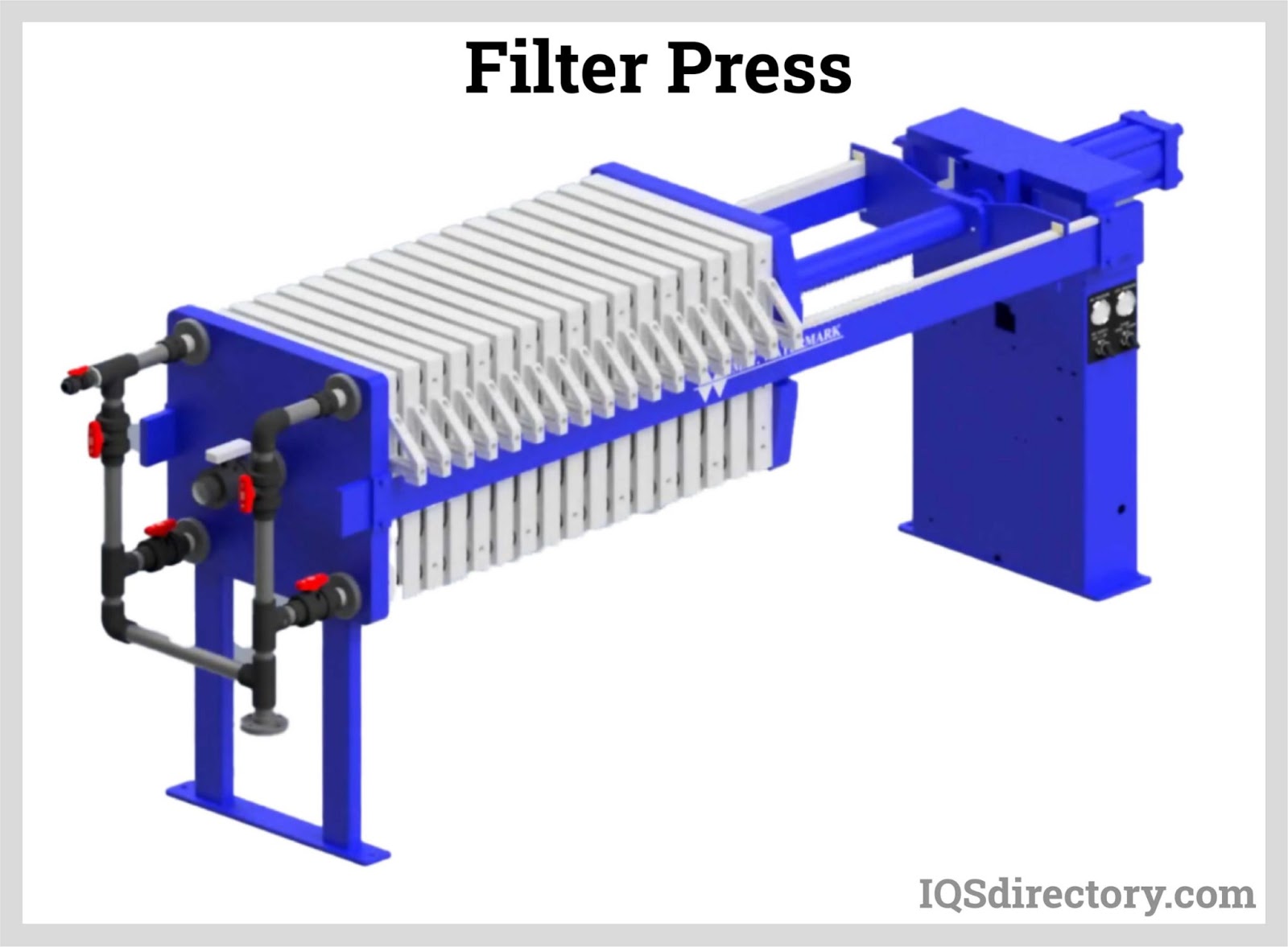
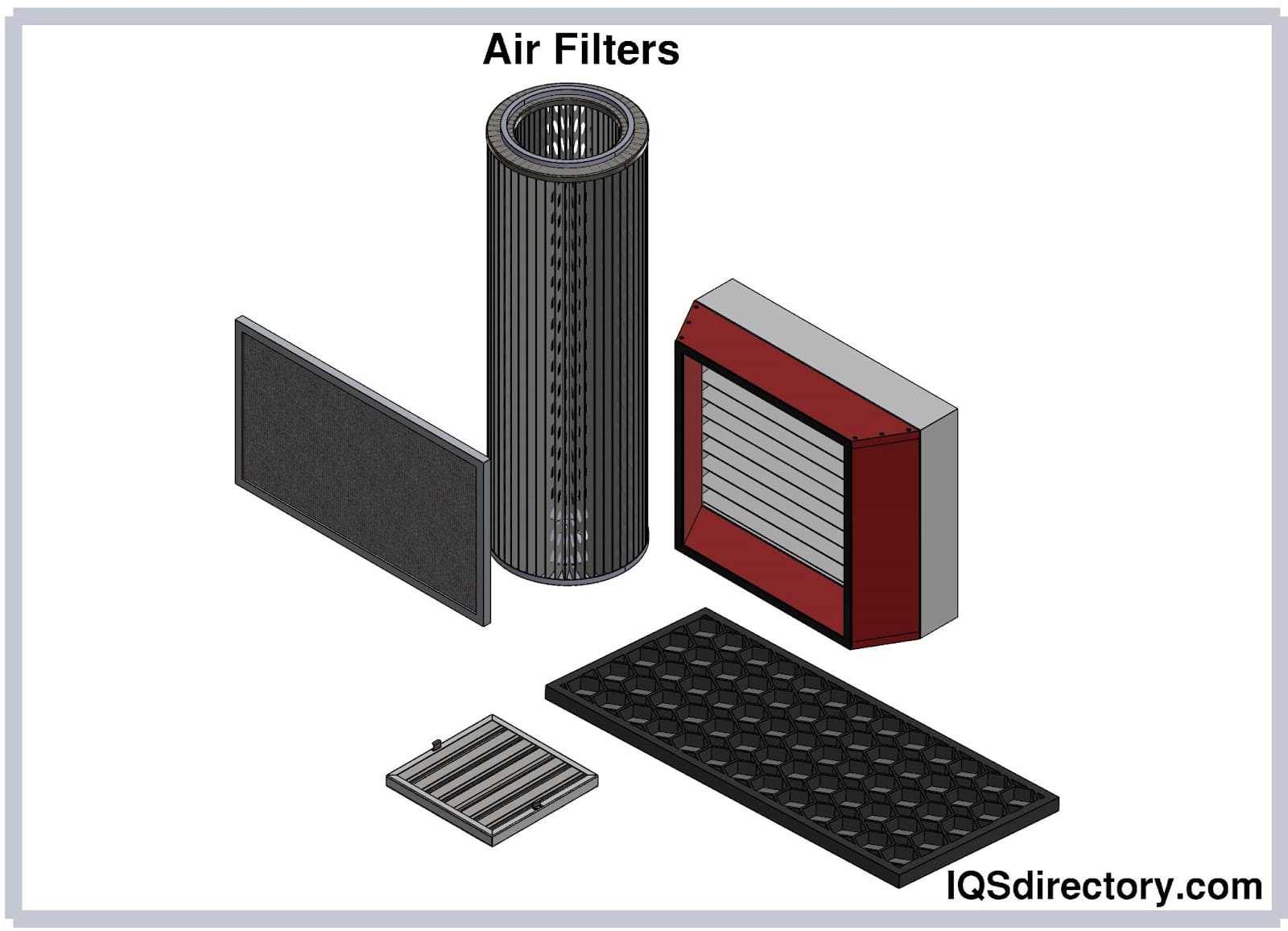
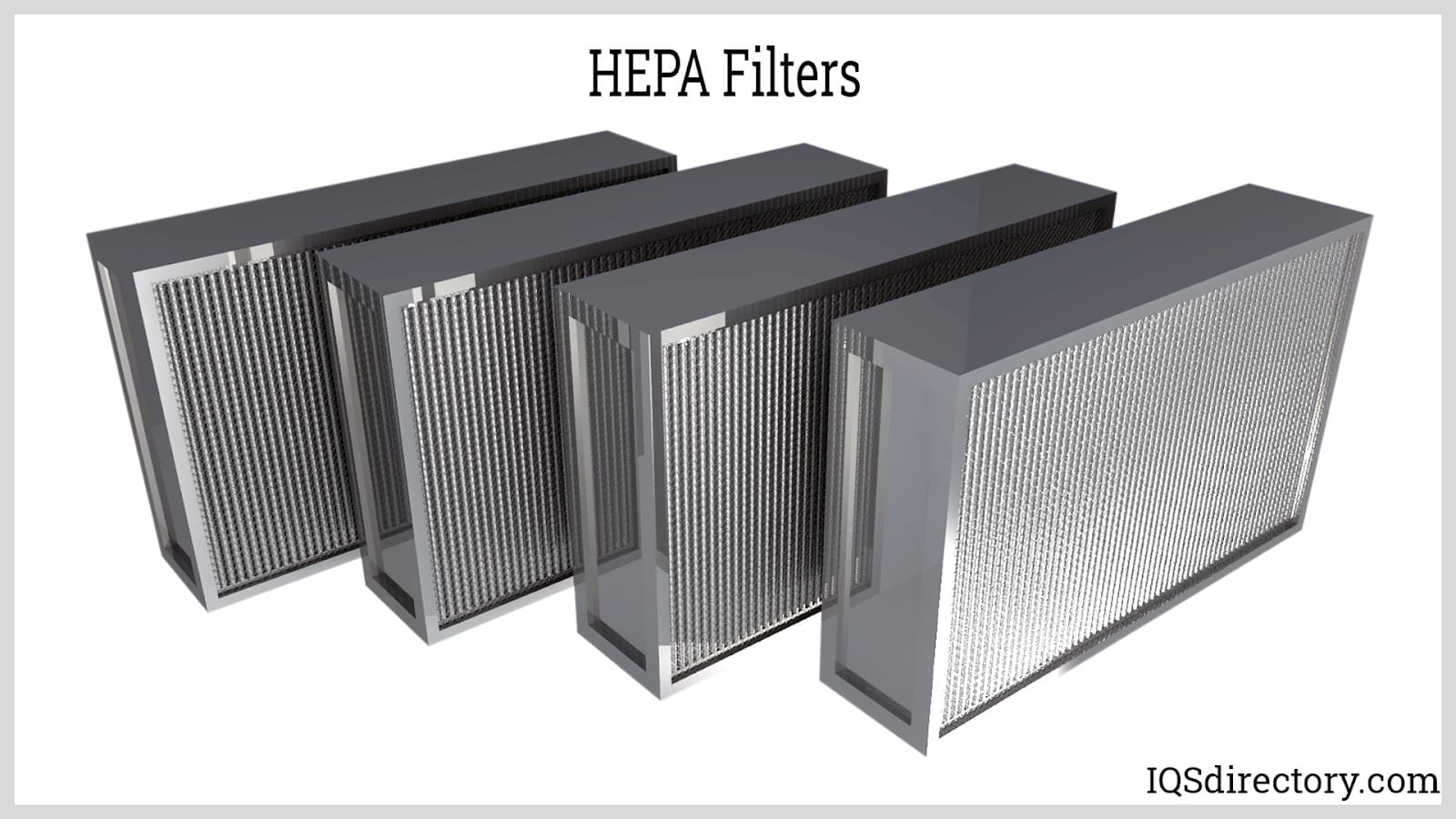
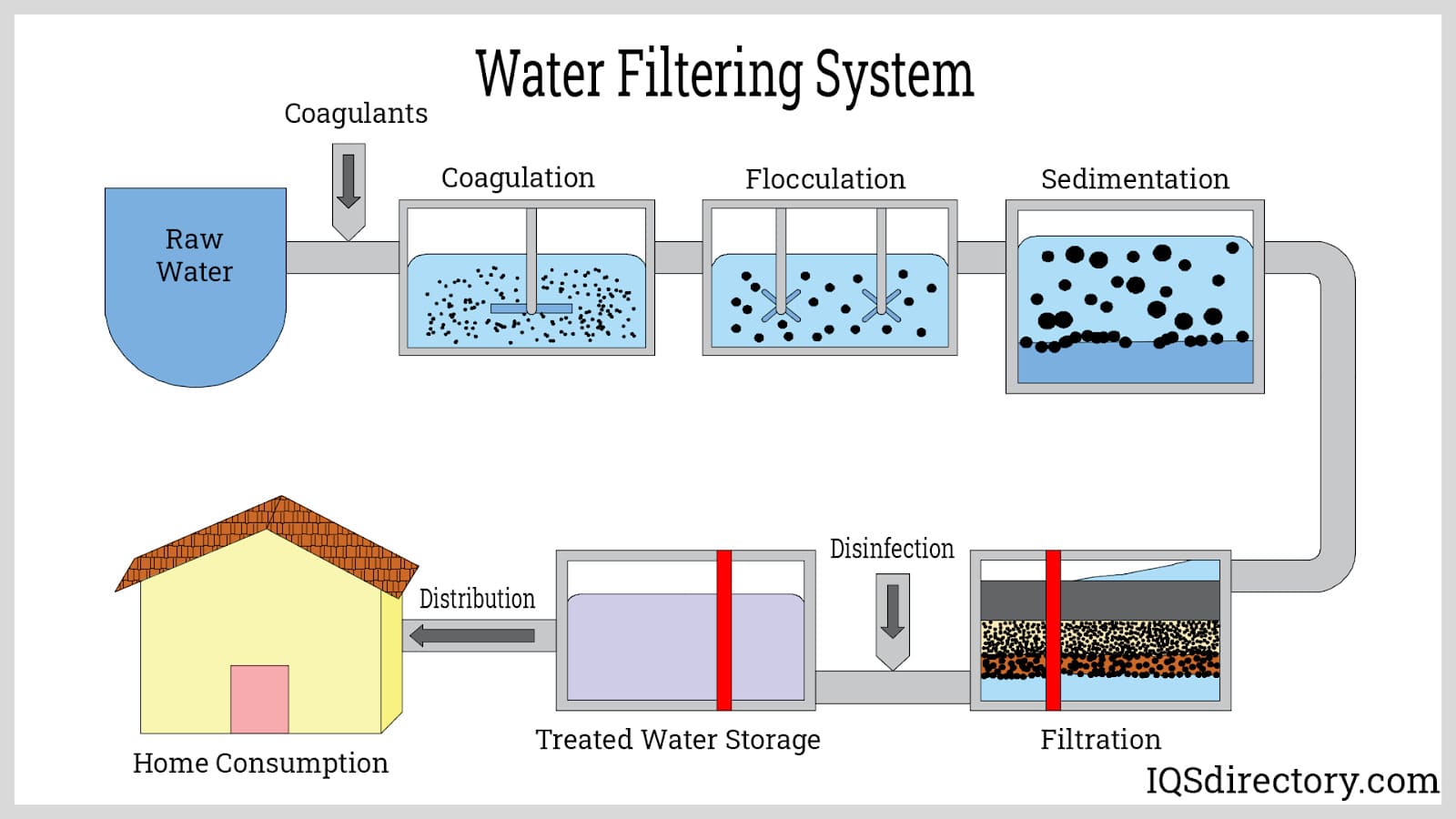
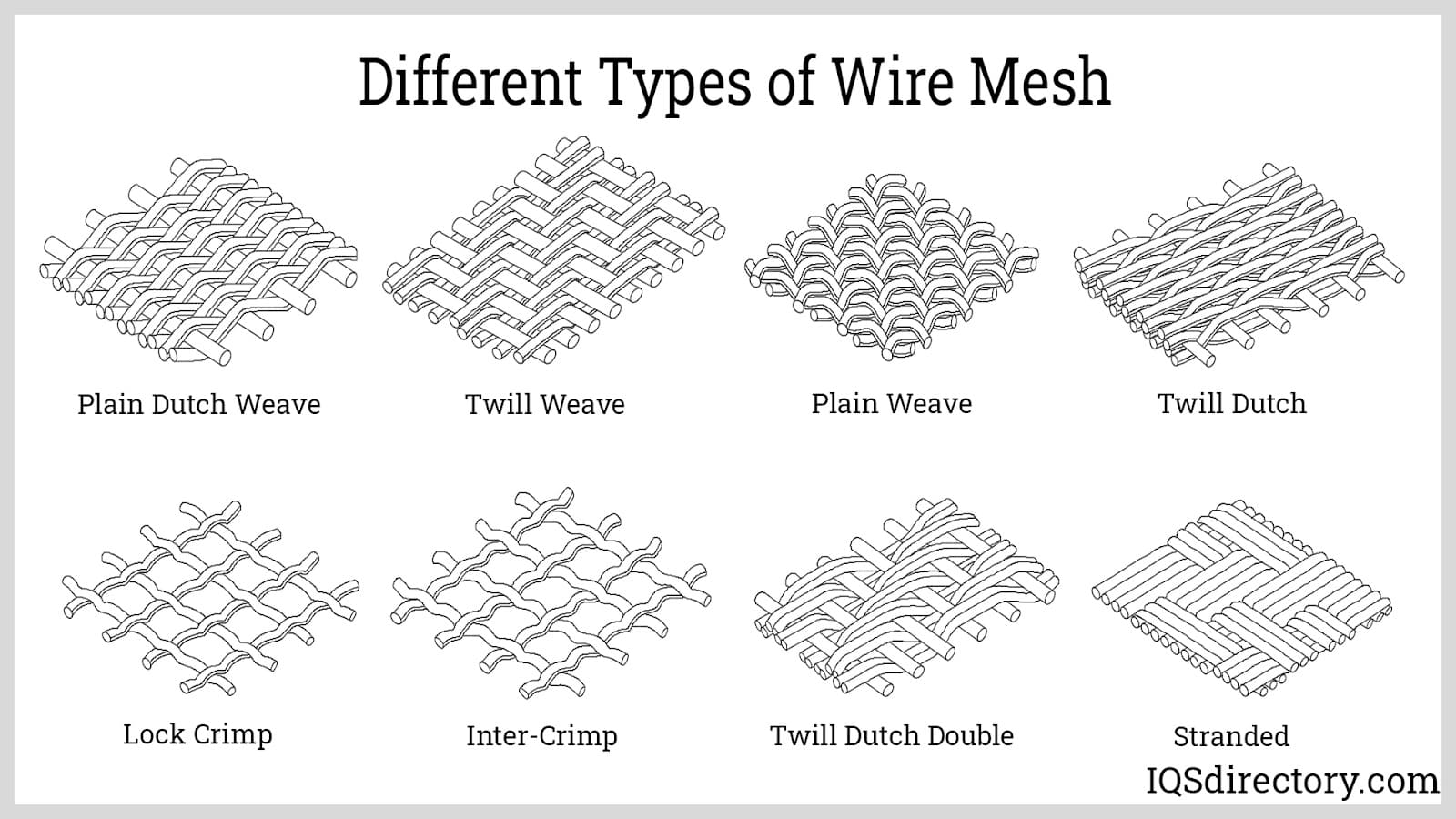
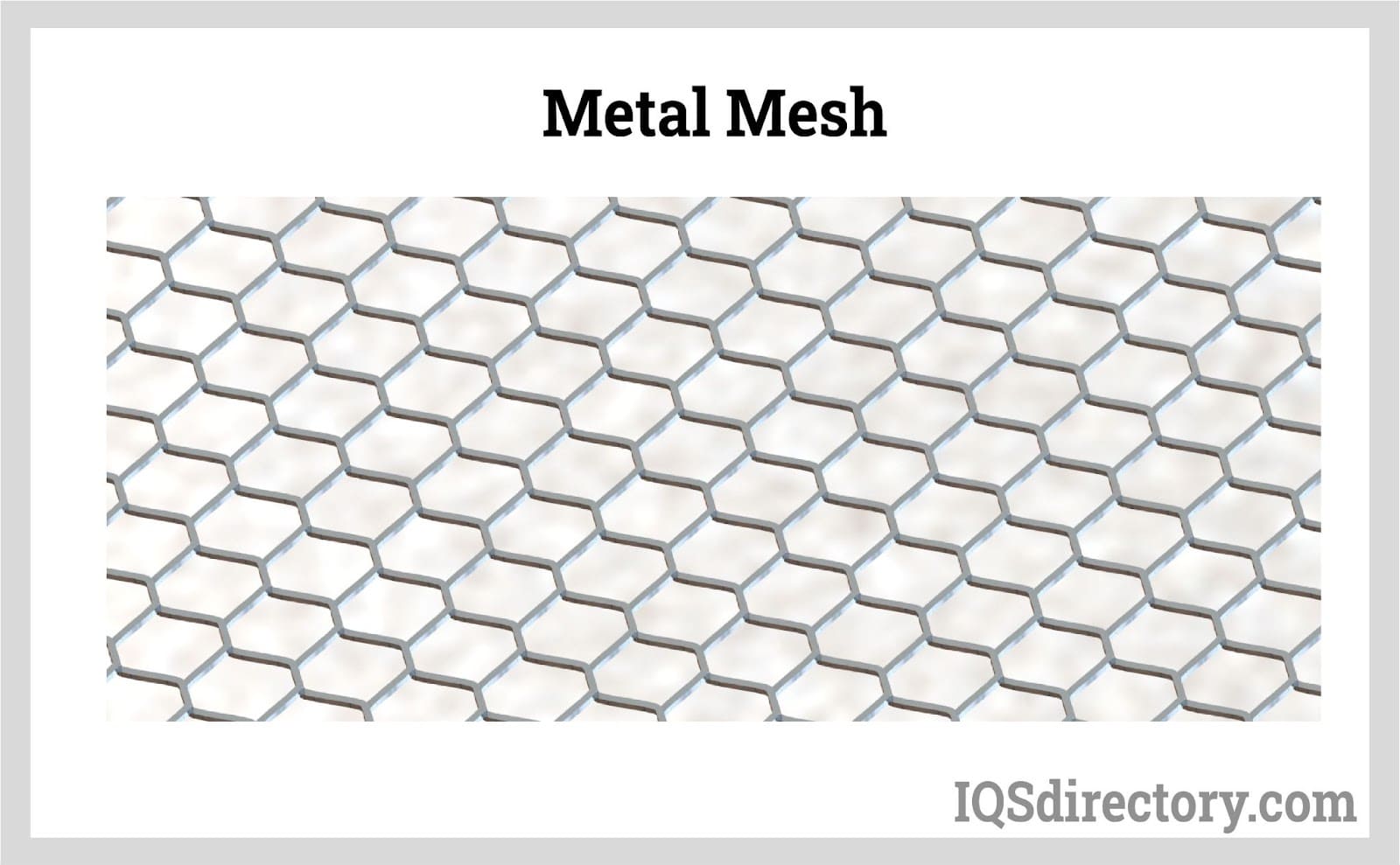
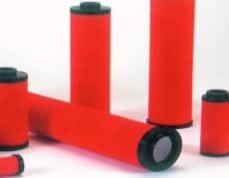 Air Filters
Air Filters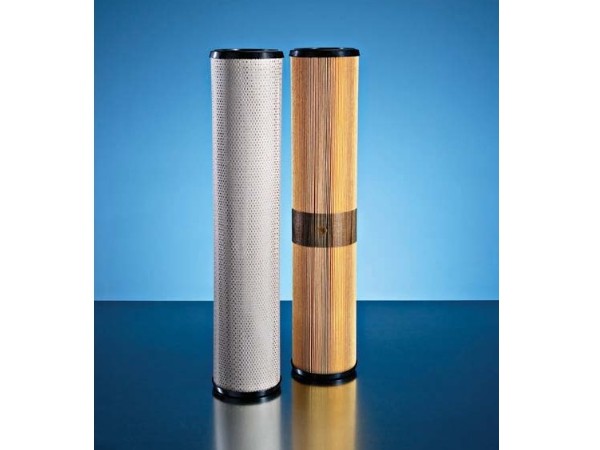 Liquid Filters
Liquid Filters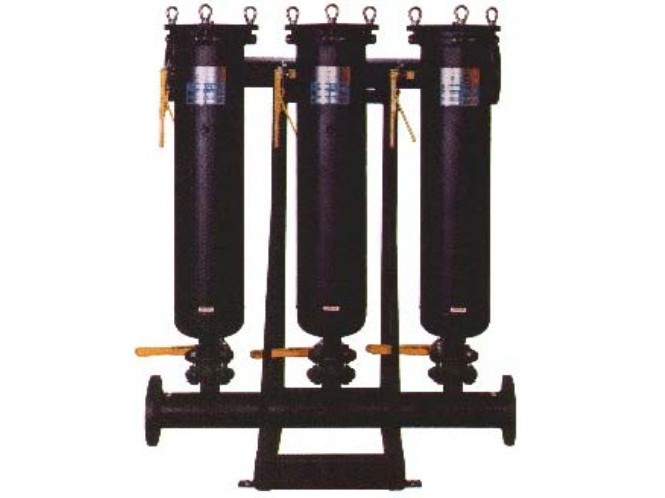 Filtering Systems
Filtering Systems Castings & Forgings
Castings & Forgings Bulk Material Handling
Bulk Material Handling Electrical & Electronic Components
Electrical & Electronic Components Flow Instrumentation
Flow Instrumentation Hardware
Hardware Material Handling Equipment
Material Handling Equipment Metal Cutting Services
Metal Cutting Services Metal Forming Services
Metal Forming Services Metal Suppliers
Metal Suppliers Motion Control Products
Motion Control Products Plant & Facility Equipment
Plant & Facility Equipment Plant & Facility Supplies
Plant & Facility Supplies Plastic Molding Processes
Plastic Molding Processes Pumps & Valves
Pumps & Valves Recycling Equipment
Recycling Equipment Rubber Products & Services
Rubber Products & Services